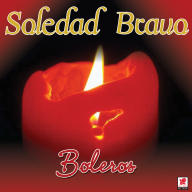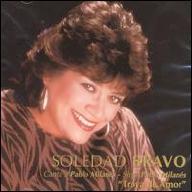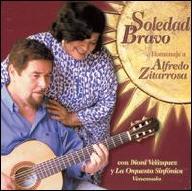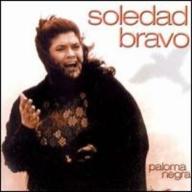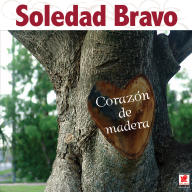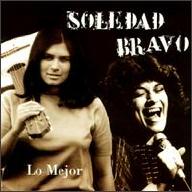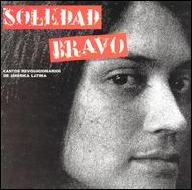Bravo, who inherited her political convictions from her father, emigrated to Venezuela with her parents at the age of seven. While attending the Liceo Rafael Urdaneta, she began singing with a group. She continued to sing while studying architecture, psychology and literature at the Central University of Venezuela. Shortly after her graduation in 1967, Bravo was hired to perform every morning on a television show #Buenos Dias. She remained on the program for years. Her debut album, Soledad Bravo Canta, released in 1968, included her interpretation of Carlos Puebla's tribute to Che Guevera, Hasta Siempre.
Between 1969 and 1976, Bravo continued to focus on the songs of Latin America, releasing three commercially successful albums and touring throughout Peru, Argentina, Chile and Mexico. In 1972, Bravo recorded a double-album, En Vivo, featuring songs of the Spanish Civil war. Four years later, she was invited to perform in Spain. An appearance on Spanish television, with accompaniment by flamenco guitarist Manolo Sanlucar, helped to make her a nationally known artist. During the four years that she remained in Spain, Bravo recorded several albums including one with Spanish poet Rafael Alberti in 1977, and a collection of songs of the Spanish Jews, Cantos Sefardies, that received a Grand Prix Du Disque award in France. Switching her attention to the tropical repertoire, Bravo traveled to New York to record Caribe, produced by salsa musician Willie Colon. Four years later, she recorded a self-titled album with accompaniment by Eddie Gomez, Airto Moreira, Paquito D'Rivera, Jorge Dalto, Ray Barreto, Yomo Toro and Spyro Gyra. ~ Craig Harris, Rovi


